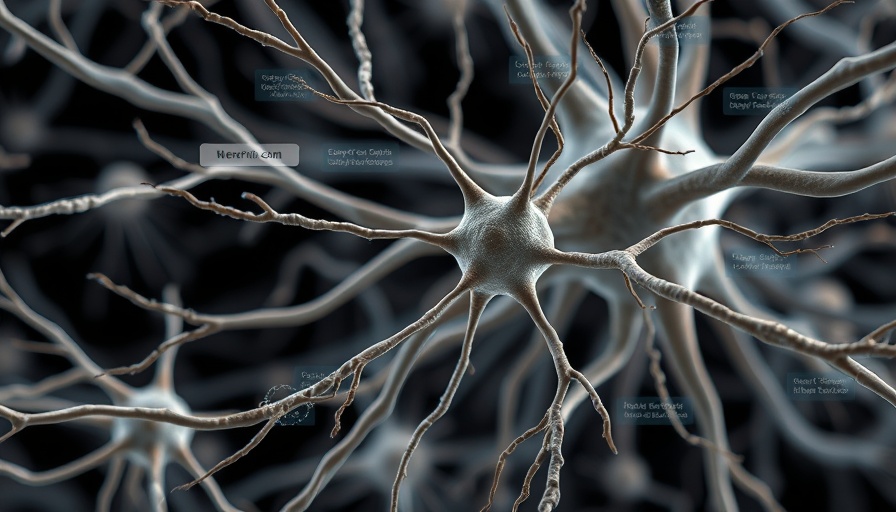Did you know that more than 2.2 billion people worldwide suffer from vision impairment or blindness? These numbers from major health organizations highlight just how crucial it is to protect your eyesight starting today. Whether you’re in front of screens for hours or simply aging gracefully, your daily habits play a massive role in eye health. In this guide, you’ll unlock science-based strategies, practical routines, and expert advice to keep your healthy eyes bright for life, warding off vision loss and common eye diseases.Startling Facts About Healthy Eyes: Why Eye Health Matters"More than 2.2 billion people worldwide suffer from vision impairment or blindness." – World Health Organization Striking numbers like these remind us why eye care is not just a concern for adults or the elderly; it’s vital for everyone, at every age. Eye health problems such as dry eye, macular degeneration, or diabetic retinopathy can arise silently, slowly robbing us of vision until it’s too late. With vision loss impacting daily life, independence, and even overall wellbeing, cultivating healthy habits for your eyes becomes a lifelong mission. We'll explore actionable, expert-recommended steps to help you protect your eyes, reduce the risk of eye diseases, and keep those regular eye exams central to your wellness journey.What You'll Learn About Healthy EyesKey foundations of eye health and eye careDaily routines to keep your eyes healthyCommon eye diseases and prevention tipsBest foods and nutrients for maintaining healthy eyesWhen to get an eye examUnderstanding Eye Health and Why Healthy Eyes Are ImportantOur eyes are remarkable organs, processing enormous amounts of visual information every second. Yet, many people take eye health for granted until symptoms appear. Paying attention to the factors that affect your eyes—from family history and lifestyle to daily care—can ensure you maintain healthy eyes well into the future. Protecting your eyes with the right habits can help prevent common eye diseases, vision loss, and even complications from conditions like high blood pressure or diabetes. By learning more about the science behind eyesight and the most common risks involved, you'll be empowered to make informed decisions for lifelong visual wellness.The Science Behind Healthy Eyesight To keep your eyes healthy, it helps to understand how they work. Each healthy eye contains delicate structures like the cornea, lens, and retina, working together to capture and process light. The retina, filled with photoreceptors, sends signals to your brain, allowing you to see the world in vivid detail. Nutrients, oxygen, and proper blood flow keep these parts functioning optimally. Maintaining eye health is also deeply connected to overall wellness—the same habits that promote a healthy heart or lower high blood pressure are often good for your eyes, too. Protecting these systems through effective eye care, nutrition, and regular eye exams ensures strong vision for years to come.Disruptions to the eye’s internal environment, such as chronic dry eye, high blood sugar, or persistent inflammation, can lead to complications. Regular hydration and proper rest help maintain the fluid balance and tear film, both critical for comfort and clear vision. When the eye doesn’t receive enough moisture or nutrients from the blood, issues like blurred vision, sensitivity to light, or fatigue can arise. That's why it's essential to support your healthy eyes with healthy habits every day—embracing a balanced diet, exercise, and screen breaks all help you retain sharp vision and reduce eye strain.For those especially interested in holistic approaches to aging and wellness, integrating eye health into your broader self-care routine can be transformative. You might find additional inspiration and practical tips in the Senior Health and Wellness, Naturally resource, which explores natural strategies for maintaining vitality as you age.Common Threats to Eye Health and How to Protect Your EyesThere are everyday risks that threaten the health of your eyes—many of them are preventable with a few smart changes. Extended screen time is a leading cause of digital eye strain and dry eye, while insufficient sleep may reduce your eyes’ ability to recover from daily stressors. Environmental factors such as UV exposure can speed up age-related changes, like cataracts or macular degeneration. Even certain health conditions, such as diabetes or high blood pressure, can silently damage delicate blood vessels in your eyes. Practicing regular eye care—like washing your hands before touching your eyes, removing makeup thoroughly, and wearing sunglasses with UV protection—helps defend against these threats.Lifestyle choices also play a large role in keeping your eyes healthy. Managing chronic conditions, eating a nutrient-rich diet, and attending scheduled eye exams all form a strong foundation for eye health. If you’re wearing contact lenses, make sure to follow hygiene recommendations from your eye care provider to prevent infections. By understanding these risks and proactively protecting your eyes, you significantly cut your chances of vision problems and other eye diseases.Healthy Habits: Lifestyle Choices for Healthy EyesPractice proper eye care and hygieneTake regular breaks from screens (the 10-10-10 rule)Use protective eyewear during risky activitiesStay hydrated and exercise regularly for eye healthAdopting these healthy habits can make a real difference in your wellbeing. Washing hands before touching your face, avoiding rubbing your eyes, and keeping your eyewear clean help reduce the risk of irritation and infections. The "10-10-10 rule"—taking a 10-second break every 10 minutes by looking at something 10 feet away—helps combat screen fatigue and digital eye strain. It’s also crucial to wear protective eyewear during sports, home repairs, or when exposed to chemicals; this simple action can prevent serious injuries. Finally, staying hydrated and including regular exercise in your routine supports healthy blood flow and oxygen delivery—invaluable for long-lasting eye health and overall wellness.Diet and Nutrition for Keeping Eyes HealthyEssential Vitamins and Fatty Acids for Healthy EyesFoods Rich in Eye-Healthy NutrientsNutrientBenefitCarrots, sweet potatoesVitamin APrevents night blindness and supports the retinaSalmon, walnuts, flaxseedOmega-3 Fatty AcidsProtects retina and prevents dry eyeKale, spinach, collard greensLutein & ZeaxanthinFilters harmful light, reduces risk of macular degenerationOranges, strawberries, peppersVitamin CPrevents cataracts, boosts immune defenseEggs, corn, grapesZincSupports night vision and eye cell health A diet packed with colorful fruits and vegetables, lean proteins, and healthy fats is the foundation of eye health. Nutrients like omega-3 fatty acids, vitamins A, C, and E, zinc, lutein, and zeaxanthin deliver targeted protection for your retina and lens. These compounds help reduce the risk of eye diseases such as macular degeneration and cataracts, and support strong, resilient eyes. Omega-3 fatty acids, in particular, found in fatty fish and nuts, are powerful allies for preventing dry eye and maintaining tear production. Zinc and vitamin C—both present in many plant-based foods—offer extra cushion against oxidative damage. Making these foods a regular part of your diet truly is good for your eyes.It’s equally important to pair smart nutrition strategies with regular lifestyle check-ups. High blood pressure or diabetes can interfere with nutrient absorption, making annual labs and health screenings just as critical as dietary choices. By keeping your meal plan focused on whole, unprocessed foods and consulting with a care provider or nutritionist, you’ll strengthen every layer of eye care and reinforce long-term vision health.Worst Foods for Eye Health and Vision LossAs vital as nutrient-rich foods are for eye health, certain processed foods can put you at risk of vision problems and eye diseases. Diets high in added sugars, saturated fats, and refined carbohydrates (think: sugary drinks, white bread, snack chips, and fatty fried foods) raise your chances of high blood pressure and diabetes—two major threats to your eyes. Studies link excessive consumption of these foods to a higher risk of macular degeneration and vision loss, as they can promote chronic inflammation and poor blood flow to sensitive eye tissues.Limiting or avoiding these foods helps protect your eyes not only from immediate discomfort but also from long-term harm. Reach for whole grains, fresh water, vegetables, and healthy fats to swap out harmful choices, and always keep in mind: your vision is closely tied to what you put on your plate. Regular conversations with your eye doctor or dietitian can help identify early risk factors and support sustainable nutrition habits for healthy eyes.Natural Supplements for Good Eye HealthiGenics is an all-natural supplement designed to support clearer, healthier vision using a blend of antioxidant-rich botanicals. Its ingredients help combat oxidative stress, one of the leading contributors to age-related vision decline, while promoting sharper focus and reduced eye fatigue. Many users appreciate that iGenics targets inflammation and improves circulation to the eyes, which may enhance overall visual performance. Because it’s plant-based, it provides a gentle, non-synthetic option for those seeking long-term eye wellness. Whether you’re dealing with digital strain or simply want to protect your eyesight as you age, iGenics offers a natural, proactive approach to vision support. Recognizing and Preventing Eye DiseasesCommon Eye Diseases and Signs of Eye Disease Common eye diseases like macular degeneration, glaucoma, cataracts, diabetic retinopathy, and dry eye are some of the top causes of vision loss worldwide. Each disease presents different warning signs—blurry vision, sudden flashes or floaters, eye pain, or an increase in glare sensitivity. Sometimes, early eye disease has no obvious symptoms, which is why annual eye exams are so vital. These regular check-ups help spot issues before they cause irreversible damage and provide more treatment options, making conditions easier to treat and manage.Recognizing changes in your vision or the appearance of your eyes is the first line of defense. If you notice frequent headaches, trouble reading, vision problems in low light, or any new floaters, consult your eye care professional promptly. Early intervention not only increases the likelihood of preserving your sight, but also guards against complications that could impact your independence and quality of life. Maintaining awareness about these conditions supports healthier habits for the whole family.How to Protect Your Eyes from DiseasePreventing eye diseases starts with a multifaceted approach: regular screenings, adopting protective habits, and effective self-care. Wearing sunglasses to block 100% of UVA and UVB rays reduces the risk of cataracts and retinal changes. Managing chronic health issues, like high blood pressure or diabetes, directly protects your sensitive eye tissues by minimizing vascular stress. Adding to this, avoid smoking as it increases the risk of age-related eye conditions dramatically. Always follow your eye care provider's recommendations for managing allergies, dry eye, and contact lens care to keep infections at bay and support ongoing eye care.Finally, don’t forget household safety measures, from wearing protective eyewear when cleaning or working with chemicals, to keeping sharp objects away from children. Some jobs and hobbies pose more risks for eye injuries; being proactive in these situations means the difference between healthy eyes and preventable damage. Education, prevention, and regular engagement with your eye health are the best tools for preserving clear vision.The Importance of Regular Eye Exams for Healthy EyesWhat to Expect at a Dilated Eye Exam A dilated eye exam allows your eye doctor to thoroughly inspect your eyes for diseases, sometimes before you have any signs or symptoms. During the process, special eye drops dilate (widen) your pupil, giving the doctor a clear view of the retina, optic nerve, and blood vessels. This is crucial for catching early signs of diabetic retinopathy, glaucoma, and macular degeneration—none of which may manifest obvious symptoms in early stages. The exam is painless, although temporary light sensitivity and blurry vision are normal side effects that subside within a few hours.Annual or biennial eye exams are recommended for all adults and even more frequently for those with higher risks, such as individuals who wear contact lenses, have diabetes, or a family history of eye diseases. These comprehensive exams provide a roadmap of your eye health and let your eye doctor detect subtle changes before major vision loss occurs, ensuring your eyes stay healthy for years to come.How to Choose an Eye Doctor for Optimal Eye CareChoosing the right eye doctor is vital for the ongoing health of your eyes. Look for licensed optometrists or ophthalmologists with excellent patient reviews, up-to-date certifications, and a strong reputation in your area. Ask if the clinic uses modern diagnostic equipment, as technology can aid in early detection of subtle eye problems. Consider the clinic’s hygiene protocols, staff responsiveness, and whether they take the time to educate you on best practices in vision care.Building a relationship with your eye care provider means you'll feel more comfortable discussing symptoms, sharing concerns, and following through on tailored recommendations. This commitment to your own eye health, supported by expert guidance, helps prevent complications and gives you peace of mind that your eyes are healthy at every stage of life.Eye Care Tips to Maintain Healthy Eyes for LifeWear sunglasses to protect your eyesMaintain healthy habits such as no smokingFollow your eye doctor’s advice for ongoing eye health Consistency is everything when it comes to protecting your healthy eyes. Wear sunglasses outdoors—even on cloudy days—to block harmful rays and prevent future damage. Quit smoking to lower your risk for vision-threatening diseases. Lastly, stay in sync with your eye care professional, following their tailored advice for managing conditions like allergies, dry eye, or contact lens hygiene. These everyday actions will help you maintain strong, comfortable vision throughout every stage of life.Watch this short video for a rapid-fire summary of daily actions you can take for healthy eyes: nutrition, screen breaks, protective eyewear, and regular check-ups—all backed by the latest eye care research.People Also Ask About Healthy EyesHow can I make my eyes healthier?To make your eyes healthier, start by eating a nutrient-rich diet packed with leafy greens, omega-3 fatty acids, and vitamin A. Practice daily eye care by taking frequent breaks from screens, wearing sunglasses outside, and maintaining proper hygiene if you use contact lenses. Avoid smoking, manage chronic health issues like high blood pressure or diabetes, and schedule regular eye exams with a trusted eye doctor. These simple habits will help protect your eyes and promote lifelong vision health.How do you tell if your eyes are healthy?Signs of healthy eyes include clear, comfortable vision; a lack of redness, pain, or sensitivity to light; and no sudden changes in your ability to see. Blurred vision, spots, floaters, or persistent dryness may indicate a problem. Even in the absence of symptoms, you should get regular eye exams to check for early signs of eye diseases that might not be immediately noticeable. Always consult with your eye doctor if you notice unusual changes.What is the #1 worst food for vision loss?The #1 worst food for vision loss is processed food high in added sugars and trans fats, like sugary drinks, fried snacks, and baked goods with hydrogenated oils. These foods increase your risk for high blood pressure and diabetes, which are key contributors to eye diseases such as macular degeneration and diabetic retinopathy. Choosing natural, unprocessed foods and healthy fats is good for your eyes and supports lasting vision.What is the 10-10-10 rule for eyes?The 10-10-10 rule is a simple way to reduce digital eye strain and keep your eyes healthy. Every 10 minutes, look away from your screen for 10 seconds and focus on something at least 10 feet away. This practice relaxes your eye muscles, helps replenish natural tears, and can prevent symptoms like dry eye, blurred vision, and fatigue—especially important in today’s digital age.FAQ: Eye Health and Healthy EyesHow often should I get an eye exam?Most adults should get an eye exam every 1–2 years, but those with high risk factors—like diabetes, family history of eye disease, or wearing contact lenses—may need more frequent checkups.What are early signs of eye disease?Early signs can include sudden vision changes, increased floaters, eye pain, redness, light sensitivity, or trouble seeing at night. Many eye diseases don’t show symptoms at first, so routine exams are vital for early detection.Which fatty acids support healthy eyes?Omega-3 fatty acids found in fish like salmon, flaxseed, and walnuts are particularly beneficial for preventing dry eye, supporting the retina, and reducing inflammation linked to eye conditions.At what age should children have their first eye exam?Children should have their first full eye exam between 6 and 12 months, again at age 3, and before starting school, then every 1–2 years. Early detection of eye problems ensures healthy development and learning.Key Takeaways for Healthy EyesDaily habits, proper nutrition, and regular eye exams ensure healthy eyesProtect your eyes with sunglasses and proper eyewearConsult your eye doctor promptly for vision issues

 Add Element
Add Element  Add Row
Add Row 




Write A Comment